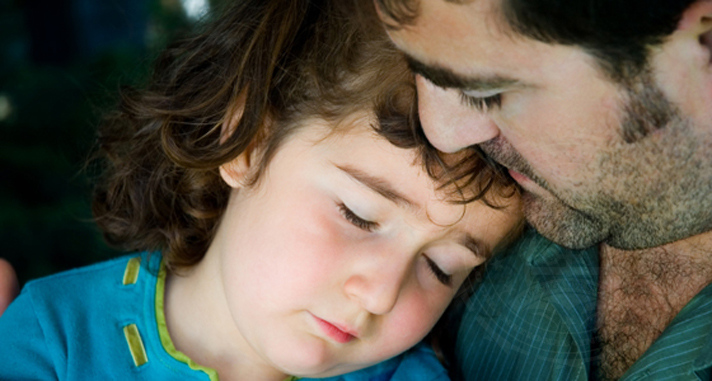Many people think about adopting a child from an orphanage, because they want to give their love and care to disadvantaged babies. They can become adoptive parents only on condition that they meet certain requirements. For example, it is desirable for citizens to be officially married. Their financial situation should be optimal in order to be able to provide the child with everything necessary. By law, there is a secret of adoption, thanks to which the biological parents of the baby will not be able to find out in which family their child grows. Information about the adoption process should also not be passed on to a minor or foster parents.
Concept of mystery
If people decide to adopt the baby into their family, then they should raise it in the same way as their own children. The adoption procedure should be carried out secretly, and the decision on the transfer of the baby to citizens is made by the court.
The child is transferred to the family only after the decision comes into force. From this moment, the kid can count on material support, care and love from the side of adoptive parents. He receives the name of the adoptive parents, and can also receive their property by inheritance. In this case, the parents and other persons involved in the process should keep the secret of adoption. It lies in the fact that no confidential information should be transmitted to third parties.

What actions can adoptive parents take?
After the adoption of a child, citizens who have adopted the baby in their family can perform the following actions:
- a change in the date of birth of the baby, but if he is less than one year old, then the deviations should not exceed three months;
- place of birth adjustment;
- change of personal data presented by name, surname or patronymic, but the baby should not be more than 10 years old, as an older child must give consent to such innovations.
With the help of these actions, the secret of child adoption is ensured, as unauthorized persons simply will not be able to establish the biological parents of the baby or receive other confidential information about him.

Process consequences
The procedure for adopting a baby involves numerous legal consequences for participants in the process. These include the following:
- Children and adoptive parents have certain rights and obligations in relation to each other.
- Legal ties between biological parents and the baby are lost.
- If the adoptive parent is a single citizen, then the new spouse may adopt the baby in the future.
- At the request of the adoptive parents, a legal relationship may be maintained between the minor and some of his close relatives.
The main issues regarding adoption are decided directly in the lawsuit, which takes into account the interests and rights of the child.

Who should keep a secret?
The secret of adoption should be kept by all participants in the process who know who the baby was brought up for. These persons include:
- a judge deciding on the need to transfer the baby to a particular family;
- registry office employee making changes to the documentation of a minor;
- employees of the state institution where the child was before being transferred to a new family;
- guardianship specialists;
- other persons who have received information regarding the adoption of a child.
Information on adoption is protected by law, which is indicated in Art. 139 SK.Therefore, if a person violates this secret, then the citizen will be held accountable, and it is criminal. To ensure the secrecy of adoption, at the request of the adoptive parent, the personal data of the child may change.

What is a crime?
If this secret is violated, then this is a serious crime. He has an objective and subjective side. The following features are highlighted:
- The subject is an immediate offender, who may be an official or an ordinary citizen.
- Officials are employees of various state institutions, for example, judges, employees of an orphanage or registry office specialists who transmit information about adoptive parents to outsiders for personal gain.
- In addition, information about the child can be distributed by individuals represented by the relatives of the adoptive parents, neighbors or other persons who have information about the adoption procedure.
- The disclosure of confidential information is carried out against the will of the adoptive parents, and usually such a crime is committed if there is malicious intent, for example, a situation often occurs when citizens are blackmailed by their relatives or neighbors, wanting to receive a large sum of money for silence.
- The secret is usually revealed to the immediate child or the baby's parents.
There is no corpus delicti if the child is disclosed information with the consent of the adoptive parents. In this case, the disclosure of the secret of adoption is carried out with the approval of the adoptive parents.
In violation of the law, the rights and freedoms of the child and his adoptive parents are violated. This is due to the fact that the baby does not know that he is raised by step-parents. It grows in comfortable psychological conditions. If he learns at a young age that he is adoptive, this can lead to a psychological breakdown.

Signs of crime
According to the Criminal Code, the secret of adoption as a crime has the following features:
- There is no consent from the adoptive parents to commit this act;
- A person who disseminates confidential information is pursuing any malicious intent.
- The offender consciously commits unlawful acts.
In the presence of these signs to hold the offender accountable is not difficult. To do this, parents can contact the police or directly to the court. In addition, for the disclosure of the secrecy of adoption, adoptive parents can recover moral compensation from the offender.
Punishment for the criminal
Such an offense is governed by the provisions of Article 155 of the Criminal Code. Such acts are classified as committing a crime against a family and a minor. If any selfish goals are pursued, for example, a citizen wants to receive a certain amount of money from adoptive parents, then the provisions of Art. 163 of the Criminal Code.
Responsibility for disclosing the secrets of adoption can be presented in the following forms:
- A fine equal to 80 thousand rubles. It can also be replaced by the size of the offender’s salary for six months of work.
- Mandatory work within 360 hours.
- Involvement in correctional labor for up to one year.
- Arrest for 4 months, and in addition, the citizen is deprived of the right to occupy leadership positions or engage in pedagogical activities for up to three years.
The above punitive measures are considered really harsh for any person, so people who know that their parents adopted a particular child should keep this information in secret. Even if he just accidentally reveals the secret of adoption, he will still be held accountable for violating the rights of the minor and family.

How to prove?
Foster parents almost always try to keep the information about adoption secret.But sometimes they are still transmitted by intruders to the child or his biological parents. As a result, the secret of adoption is revealed. Article 155 of the Criminal Code of the Russian Federation contains information on penalties that apply to criminals. But at the same time it will be necessary to prove that a particular person has really committed illegal actions. The following evidence may be used for this:
- Witness testimony in which confidential information was disclosed.
- Documents containing threats or blackmail.
- Videos or audio recordings made by parents, witnesses, or direct perpetrators.
- Records of phone calls from which it can be understood that a citizen was indeed blackmailing his parents or threatening to reveal a secret.
- Correspondence on social networks or via SMS.
- Words of a minor to whom this information was transmitted.
If the information is communicated directly to the child, then strangers are usually used for this, therefore, difficulties arise in identifying the offender. In addition, it is difficult to bring to justice people who simply wanted to open their baby's eyes without pursuing any selfish goals. Usually such people have a bad relationship with their foster parents, so they just want to spoil the relationship in the family. Under such conditions, it is advisable to file a lawsuit in order to recover large moral compensation from the criminals.

Conclusion
Citizens who decide to adopt a child can expect that information about them and the baby will be stored by different representatives of state bodies. But often the secret of adoption is violated by neighbors, relatives or other persons who may pursue any selfish goals.
Such actions are a serious crime for which the offender is prosecuted.









